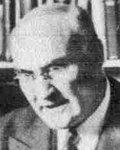|
|
| ||
* * * In many places in the Scriptures, the believer is encouraged to study the written Word as the foundation for a holy, godly and fruitful life before God and man. But how are we to study this unified, but daunting, compilation of sixty-six books written by over forty authors between nineteen hundred and thirty-five hundred years ago in languages and cultures that may be totally foreign to us? Enter the science of hermeneutics. To understand hermeneutical principles is to be equipped for an intelligent study of the Word of God, tending greatly to our approval before God as workmen that do not need to be ashamed. In our previous ten Shofars, we've been treated to sound instruction by Dr. David L. Cooper, founder of the Biblical Research Society, in interpreting Scripture, a critical skill to master, particularly in an age in which the Babel of interpretations is legion. With "Rules of Interpretation," a study that will span perhaps seventeen Shofars, we are engaging what will be our most extensive and detailed study thus far on the topic and continuing to hone our skills in rightly dividing the Word of Truth that we might be clear and accurate voices for the Lord. Let us apply ourselves. - Editor * * * | ||||
| RULES OF INTERPRETATION |
| ||
| ||||
* * *
* II. The second rule of interpretation The second rule of interpretation is to DISCOVER THE FACTS AND TRUTHS PRESENTED IN A GIVEN PASSAGE AND NOTE THE EXACT WORDING OF THE TEXT. A. Note carefully every statement that is made and 1. "Facts" defined: A fact is that which has been done, a reality, truth. (Facts always overthrow theories that are not 3. Classify the facts which are presented by any text of Scripture under rules of grammar. B. Discover the truths in every passage and analyze them 1. The physical world is controlled by laws. C. Note the exact wording of the text 1. Words are symbols of ideas. D. The following is a limited application of this rule: 1. The text: Genesis 1:1:2: In the beginning God created the heavens and the earth. And the earth was waste and * * * Links to prior studies in the "Rules of Interpretation" series may found in our Library Reprinted by permission of the Biblical Research Society, where other outstanding studies by Dr. Cooper may be found. | ||||


